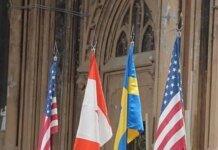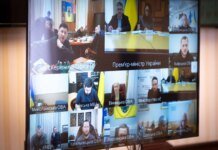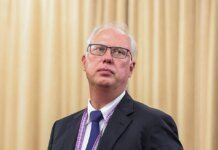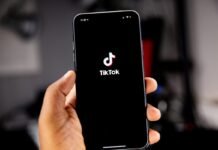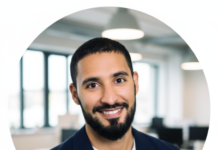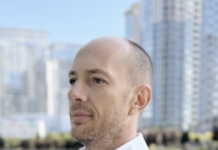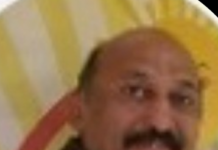Courtesy of Raymond Zhao
- Raymond Zhao thought working at Goldman Sachs was his dream until he interned there.
- While studying at Oxford University, he found a new dream: cofounding an AI startup.
- Now, his company, StructuredAI, is in Y Combinator's Fall 2025 batch.
This as-told-to essay is based on a conversation with Raymond Zhao, 23, the cofounder and CEO of Structured AI, which is in Y Combinator's Fall 2025 Batch. His internship, funding, and acceptance to YC have been verified by Business Insider. Golman Sachs declined to comment when contacted by Business Insider.
This piece has been edited for length and clarity.
Working at Goldman Sachs was my dream, but I quickly realized it wasn't for me when I interned there as an analyst in the summer of 2024.
AI, on the other hand, feels exciting. Many of the great AI companies of the next decade are being built right now, and I want to be a part of that.
Do you work in AI? If you're comfortable speaking about it with a Business Insider reporter, please fill out this quick form. We want to hear from people whose first job out of college was in AI or those who made a mid-career switch into the industry.
When I spoke to friends trying to break into the industry, however, I kept hearing about this weird dilemma: in some cases, it was easier to raise money for a startup than land an entry-level job in AI.
I skipped the graduate job hunt and cofounded Structured AI. We're now part of the Y Combinator Fall 2025 Batch and, including the $500,000 we got through YC, have raised about $1 million in pre-seed funding. Every day, I feel energized.
I thought working at Goldman Sachs was my dream
In 2021, I moved to the UK from Australia to study mathematics and statistics at the University of Oxford. I wasn't sure what career I wanted to pursue. I had wanted to be an architect, but after doing work experience at a firm when I was 18, I realized it wasn't as exciting as I'd hoped.
Student societies were a great way to get an insight into different industries, and the idea of working in finance sounded attractive: good pay, respect, and smart, hardworking colleagues. As a math student, it felt like the most prestigious route I could follow, and many of the people I looked up to worked at Goldman Sachs.
I applied for the summer 2024 internship at Goldman Sachs in London. It was highly selective, involving an online test, a virtual interview, a superday of back-to-back conversations, and a follow-up interview. When I finally got accepted, I was really excited, but within a month, it became clear that I wasn't passionate about the work.
I worked long hours, sometimes staying in the office until midnight and occasionally coming in on weekends to finish work. Other interns cared deeply about financial markets and did research in their spare time, but I didn't.
Courtesy of Raymond Zhao
After finishing the internship, I spent some time backpacking in Southeast Asia and thinking about what excited me. In 2024, I returned to Oxford for my Master's and spent the year figuring out what to do next.
As a member of the venture capital society, I met my future cofounder, Isabel Greenslade, and a network of VCs and founders. I realized I wanted to launch a startup so I could build something myself and steer the boat.
In the final year of my Master's, I joined the AI society. Isabel and I spent the year ideating and pivoting until we eventually found a working idea. Through the AI society, we met our third cofounder, Brandon Smith, who discovered a problem in his contracting work that sparked the idea of StructuredAI.
We decided to build a copilot for the preconstruction engineering world. Engineers spend a lot of time on very repetitive manual workflows, a lot of which are text-based, like paperwork and building forms. We built AI agents to assist them.
I didn't expect to raise $500,000 for our AI startup so quickly
When I was close to graduating with my Master's, I wasn't job-hunting. I just wanted a startup idea to work. We applied to Y Combinator for the summer 2025 cohort, but weren't accepted.
During my final week at Oxford in June, I skipped classes and went to San Francisco for an AI startup conference. I hadn't planned to raise money, but my founder friends encouraged me to try while I was there. I started talking to investors, and we managed to raise about $500,000.
Making Structured AI financially viable so quickly was a huge surprise, and we were able to focus on it full-time. We spoke to dozens of engineers to better understand the problem we were facing and build a sales pipeline. I think that helped us with our second application to YC.
Courtesy of Raymond Zhao
We started YC's Fall Batch in September. There are a lot of young founders, some under the age of 21, and some who dropped out of university. It's an amazing, super-ambitious community.
People warned us YC would be intense, and it is. It's a real sprint, and everyone works around the clock. We've turned our living room in our Airbnb in San Francisco into an office, with three monitors and extending desks.
On a usual day, we wake up anytime between 4 a.m. and 9 a.m., get coffee, and work for the whole day. We're going to conferences, taking calls, and going to events in the evening. I'm not sleeping that much, normally six hours, and I need a solid eight.
At the end of the cohort, in early December, we'll do Demo Day, where pitch our progress onstage to a group of investors. The pressure is real, but good work comes out of it.
To me, the biggest risk is not taking one
If you have an idea for a startup that's keeping you up at night, I recommend trying to launch it. If you can make it work and have the appetite for risk, startup life can be very rewarding.
For me, it was a calculation between building something in AI and the returns going directly to me, versus taking a corporate job, where you can wait years for a promotion.
YC is one of the most exclusive clubs in the startup world. I'm living a dream — one that came to me later down the line. Now, the next one is to build a massive company.
The biggest risk nowadays is not taking one.
Read the original article on Business Insider


